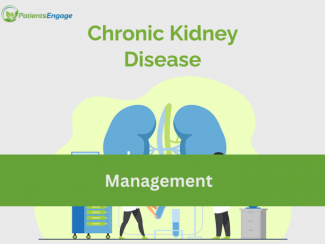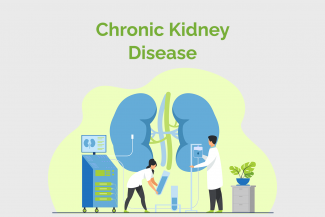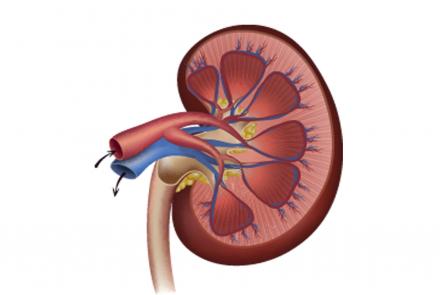Chronic kidney disease (CKD) is a worldwide public health problem.
lthough the exact reasons for the growth of CKD are unknown, changes in the demographics of the population, differences in disease burden among racial groups, and under-recognition of earlier stages of CKD and of risk factors for CKD may partially explain this growth
It is also known as Chronic Renal Disease.

Managing Chronic Kidney Disease
Chronic kidney disease brings a markedly increased risk of cardiovascular disease, which is a more common cause of death in these patients than renal failure. These patients often have other risk factors for heart disease, such as hyperlipidemia (increased lipid levels in blood).
CKD patients are kept on a special diet. The purpose of this diet is to keep the levels of electrolytes, minerals and fluid in balance. These changes include:
- Limiting fluids
- Eating a low-protein diet
- Limiting salt, potassium, phosphorous, and other electrolytes
- Getting enough calories if you are losing weight
Fitness
The recommended exercise regimen will depend on the stage of CKD. It is best to seek your physician’s advice.
If you have been diagnosed with CKD, manage your condition by doing the following:
- Have check-ups every 6 months. Clinical assessment may include:
- Blood pressure
- Weight
- Laboratory assessment may include:
- Urine ACR ( albumin creatinine ratio)
- Biochemical profile including urea, creatinine and electrolytes
- eGFR
- HbA1c (for people with diabetes)
- Fasting lipids
- Modify your lifestyle: Stop smoking, reduce weight, have a low-salt diet, exercise, drink in moderation
- Keep diabetes under control. This reduces the risk of developing chronic kidney diseases, and for those with CKD, reduces its rate of progression.
Read and learn from lived experiences of persons with CKD
Your Support team
- A general practitioner
- Nephrologist
- Nutritionist
- Fitness expert
- Other specialists as you require
Changed
30/Mar/2025
Condition











